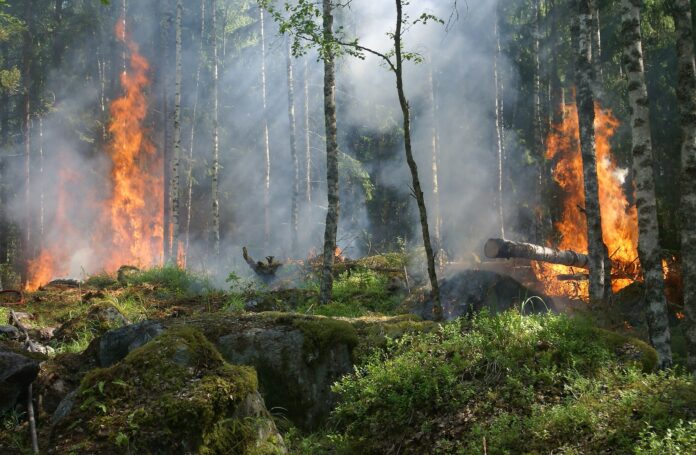So far, 2023 has already been Canada’s worst wildfire season on record, and for Canadian youth living in areas affected by wildfires, this may be the last straw. A recent survey undertaken by the Angus Reid Institute found that 24% of these Canadians aged 18 to 34 are considering relocating to avoid wildfires in the future.
The full report, which surveyed thousands of Canadian adults, was published online and summarized in a news release.
While some wildfires are necessary for our forests, climate change has led to wildfire seasons that are out of control. These unusually high levels of wildfires have had profound impacts on our health and environment, and experts predict that this will only get worse.
The Angus Reid Institute — which is a Canadian non-profit founded by sociologist Angus Reid — set out to investigate how this unprecedented wildfire season has impacted Canadian adults. To do this, they polled Canadians living in areas affected by wildfires on their experiences and opinions surrounding wildfires across the country.
Overall, the results of the survey demonstrated that wildfires have had devastating consequences for Canadians. A fifth of the survey participants shared that their health had been directly affected by wildfires, while 25% reported indirect health effects (for example, not being able to exercise as much due to poor conditions outside) and 43% said that they’d experienced eye irritation due to wildfire smoke.
One out of every eight Canadians who responded to the survey said that they were considering relocating to areas less likely to be affected by wildfires in the future — a phenomenon that is being referred to as climate migration. When looking at youth (18 to 34 years of age) specifically, this number rose to 24%, while 15% of Canadians aged 35 to 54 were also considering moving.
Most respondents shared that they don’t have high hopes when it comes to future wildfire seasons in Canada. In particular, more than half said that they expect worse conditions in the future, while more than a quarter felt that 2023 represented a new normal for Canadian wildfires.
While these results may feel discouraging, the good news is that the majority of Canadians agreed that action needs to be taken to prevent wildfire-related disasters in the future. Nearly 90% of survey respondents agreed that the climate crisis is real and not up for debate. At the same time, nearly 60% agreed that the climate crisis is directly responsible for worsening wildfire seasons, while 63% said that action must be taken now to overcome the climate crisis.
Combatting future unprecedented wildfire seasons — and keeping Canadians safe — will require changing the way we approach wildfire control. This could mean focusing on a national strategy for wildfire rather than individual provincial strategies.
It could also mean developing innovate new techniques for combatting wildfires, including AI-based approaches or proactive burning informed by Indigenous fire practices.








































